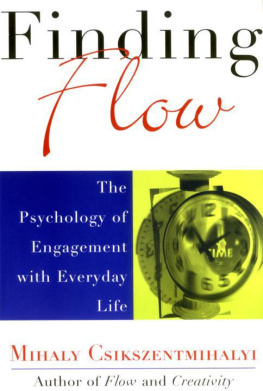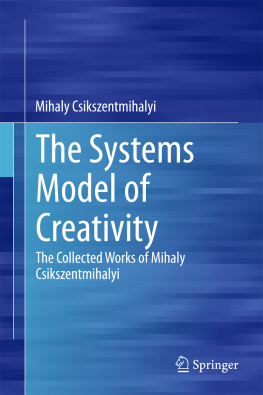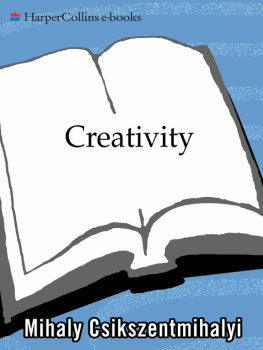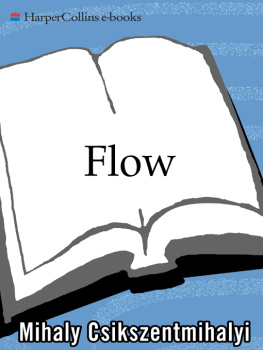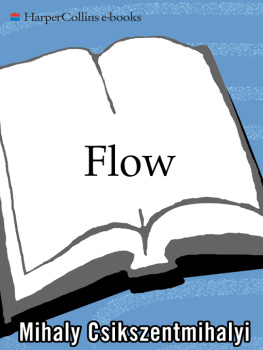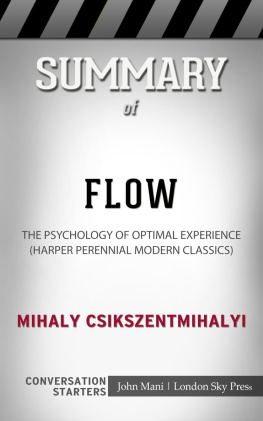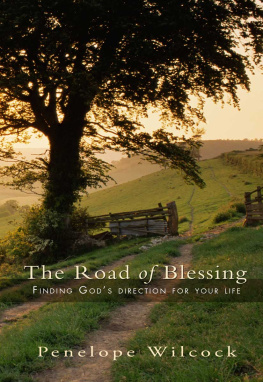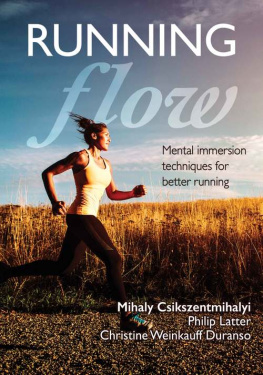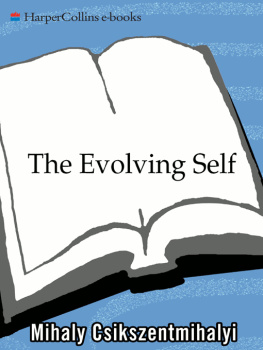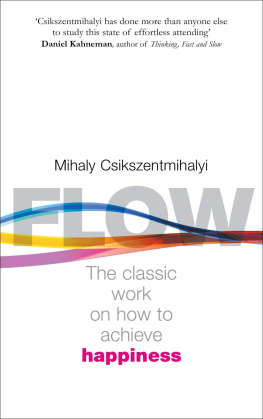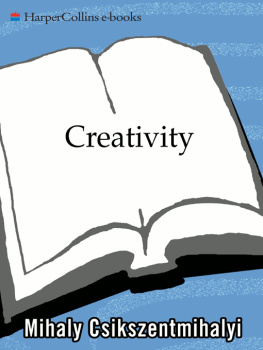
wIDJI1II
The MasterMinds series:
These concise and accessible books present cutting-edge ideas by leading thinkers in a highly readable format, each title a crystallization of a lifetime's work and thought.
Other books in the MasterMinds series include:
After God: The Future of Religion by DON CUPITT
Extraordinary Minds by HOWARD GARDNER
Machine Beauty: Elegance and the Heart of Computing by DAVID GELERNTER
Future contributors include:
STEVEN PINKER
STEWART BRAND
JOHN MADDOX
JOHN SEARLE
SHERRY TURKLE
Praise for Basic Books' Science Masters series:
"This is good publishing. PBS, eat your heart out."
-Kirkus Reviews
"Aimed at busy, nonmathematical readers, this precise series evinces solid quality control and begins under highly favorable auspices."
A. L. A. Booklist
"If this standard is maintained, the Science Masters series looks set to play a major role in the responsible popularization of sciences."
-New Scientist



MIHALY CSIKSZENTMIHALYI






For Isa, again

:CONTENTS
149 159 169

ACKNOWLEDGMENTS
The results discussed in this book are based on research supported by the Spencer Foundation and the Alfred P. Sloan Foundation. A great number of colleagues and students have given invaluable help in the investigation of flow. I would like to thank especially Kevin Rathunde at the University of Utah; Samuel Whalen at Northwestern University; Kiyoshi Asakawa at Shikoku-Gakuen University in Japan; Fausto Massimini and Antonella Delle Fave at the University of Milan, Italy; Paolo Inghilleri at the University of Perugia, Italy; and at my own University of Chicago Wendy Adlai-Gail, Joel Hektner, Jeanne Nakamura, John Patton, and Jennifer Schmidt.
Of the many colleagues whose friendship has been such an invaluable support I want to give special thanks to Charles Bidwell, William Damon, Howard Gardner, Geoffrey Godbey, Elizabeth Noelle-Neumann, Mark Runco, and Barbara Schneider.

ONE
The Structures of
Everyday Life
If we really want to live, we'd better start at once to try; If we don't, it doesn't matter, but we'd better start to die.
-W. H. Auden
The lines by Auden reproduced above compress precisely what this book is about. The choice is simple: between now and the inevitable end of our days, we can choose either to live or to die. Biological life is an automatic process, as long as we take care of the needs of the body. But to live in the sense the poet means it is by no means something that will happen by itself. In fact everything conspires against it: if we don't take charge of its direction, our life will be controlled by the outside to serve the purpose of some other agency. Biologically programmed instincts will use it to replicate the genetic material we carry; the culture will make sure that we use it to propagate its values and institutions; and other peo ple will try to take as much of our energy as possible to further their own agenda-all of this without regard to how any of this will affect us. We cannot expect anyone to help us live; we must discover how to do it by ourselves.
So what does "to live" mean in this context? Obviously, it doesn't refer simply to biological survival. It must mean to live in fullness, without waste of time and potential, expressing one's uniqueness, yet participating intimately in the complexity of the cosmos. This book will explore ways of living in this manner, relying as much as possible on findings in contemporary psychology and my own research, as well as on the wisdom of the past, in whatever form it was recorded.
I will reopen the question of "What is a good life?" in a very modest fashion. Instead of dealing in prophecies and mysteries I will try to stay as close to reasonable evidence as possible, focusing on the mundane, the everyday events that we typically encounter throughout a normal day.
A concrete example may illustrate best what I mean by leading a good life. Years ago my students and I studied a factory where railroad cars were assembled. The main workplace was a huge, dirty hangar where one could hardly hear a word because of the constant noise. Most of the welders who worked there hated their jobs, and were constantly watching the clock in anticipation of quitting time. As soon as they were out of the factory they hurried to the neighborhood saloons, or took a drive across the state line for more lively action.
Except for one of them. The exception was Joe, a barely literate man in his early sixties, who had trained himself to understand and to fix every piece of equipment in the factory, from cranes to computer monitors. He loved to take on machinery that didn't work, figure out what was wrong with it, and set it right again. At home, he and his wife built a large rock garden on two empty lots next to their house, and in it he built misty fountains that made rainbows-even at night. The hundred or so welders who worked at the same plant re spected Joe, even though they couldn't quite make him out. They asked his help whenever there was any problem. Many claimed that without Joe the factory might just as well close.
Throughout the years I have met many CEOs of major companies, powerful politicians, and several dozen Nobel Prize-winners-eminent people who in many ways led excellent lives, but none that was better than Joe's. What makes a life like his serene, useful, and worth living? This is the crucial question this book will address. Three main assumptions underlie my approach. The first is that prophets, poets, and philosophers have gleaned important truths in the past, truths that are essential for our continued survival. But these have been expressed in the conceptual vocabulary of their time, so that to be useful, their meaning has to be rediscovered and reinterpreted every generation. The sacred books of Judaism, Christianity, Islam, Buddhism, and the Veda are the best repositories of the ideas that mattered most to our ancestors, and to ignore them is an act of childish conceit. But it is equally naive to believe that whatever was written down in the past contains an absolute truth that lasts forever.
The second plank on which this book is built is that currently science provides the most vital information to humankind. Scientific truth is also expressed in terms of the worldview of the times, and therefore will change and might be discarded in the future. There is probably as much superstition and misunderstanding embedded in modern science as there was in the old myths, but we are too close in time to tell the difference. Perhaps eventually ESP and spiritual energy will lead us to immediate truth without the need for theories and laboratories. But shortcuts are dangerous; we cannot delude ourselves that our knowledge is further along than it actually is. For better or for worse, at this time science is still the most trustworthy mirror of reality, and we ignore it only at our peril.
Next page
